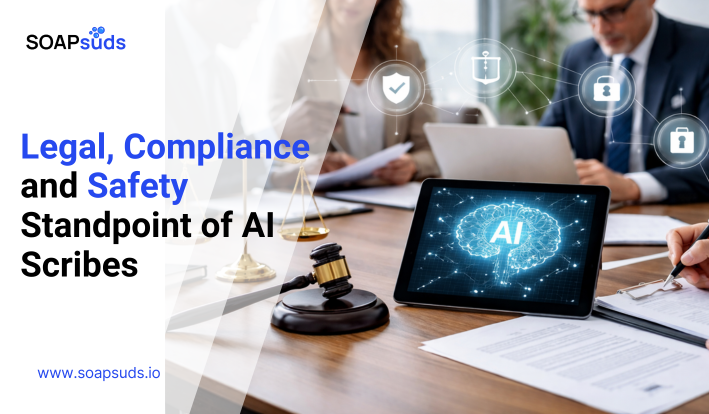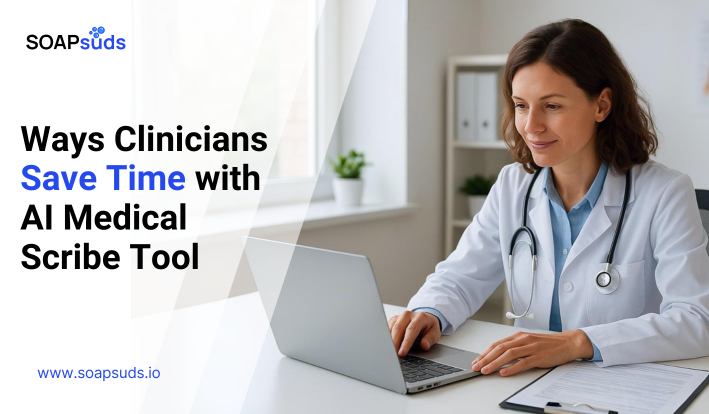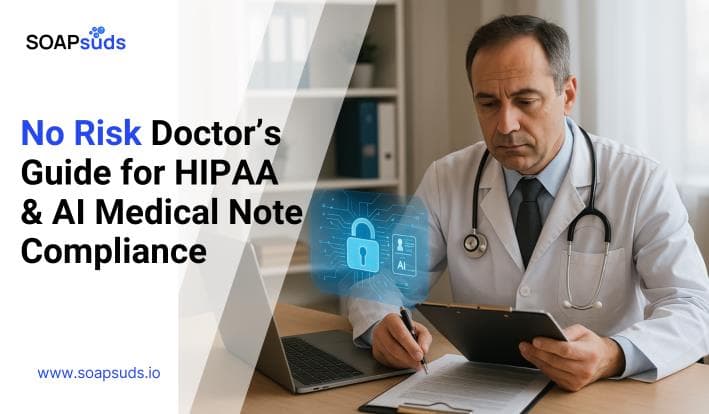No Risk Doctor’s Guide for HIPAA & AI Medical Note Regulations
SOAPsuds team
Published: 9/17/2025
SOAPsuds team
Published: 9/17/2025

The appeal of using an AI medical scribe is clear, yet healthcare organizations must first

In today’s healthcare scene, automation driven by AI Medical Scribes, such as document automation...

Paperwork burnout in therapy happens when therapists become mentally and physically drained from constant...

Building a motivated healthcare team can be difficult. After all, working in healthcare is demanding

AI medical scribes have shown clear advantages for doctors, patients, and healthcare providers

AI scribes can reduce documentation work for doctors by up to 70%, but they also
Clinical Notes
SOAP notes
DAP notes
AI medical notes